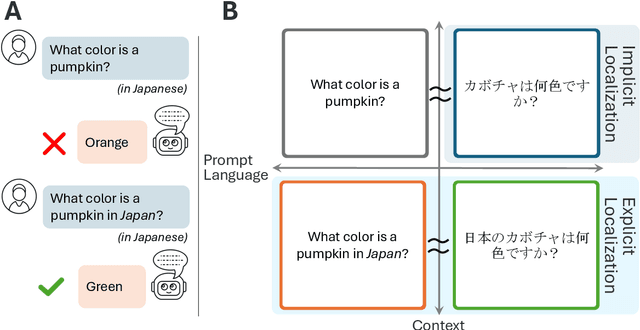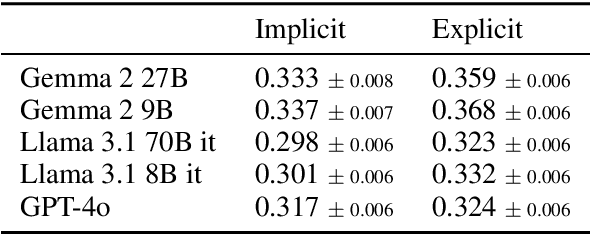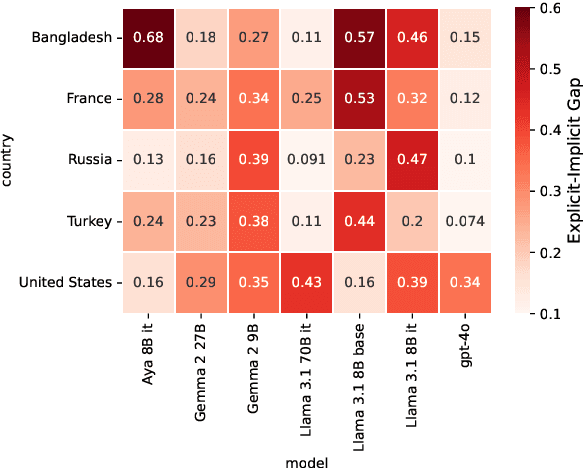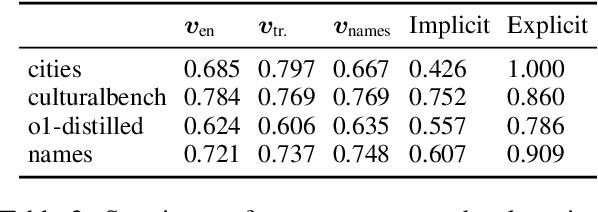Localized Cultural Knowledge is Conserved and Controllable in Large Language Models
Paper and Code
Apr 14, 2025



Just as humans display language patterns influenced by their native tongue when speaking new languages, LLMs often default to English-centric responses even when generating in other languages. Nevertheless, we observe that local cultural information persists within the models and can be readily activated for cultural customization. We first demonstrate that explicitly providing cultural context in prompts significantly improves the models' ability to generate culturally localized responses. We term the disparity in model performance with versus without explicit cultural context the explicit-implicit localization gap, indicating that while cultural knowledge exists within LLMs, it may not naturally surface in multilingual interactions if cultural context is not explicitly provided. Despite the explicit prompting benefit, however, the answers reduce in diversity and tend toward stereotypes. Second, we identify an explicit cultural customization vector, conserved across all non-English languages we explore, which enables LLMs to be steered from the synthetic English cultural world-model toward each non-English cultural world. Steered responses retain the diversity of implicit prompting and reduce stereotypes to dramatically improve the potential for customization. We discuss the implications of explicit cultural customization for understanding the conservation of alternative cultural world models within LLMs, and their controllable utility for translation, cultural customization, and the possibility of making the explicit implicit through soft control for expanded LLM function and appeal.
 Add to Chrome
Add to Chrome Add to Firefox
Add to Firefox Add to Edge
Add to Edge